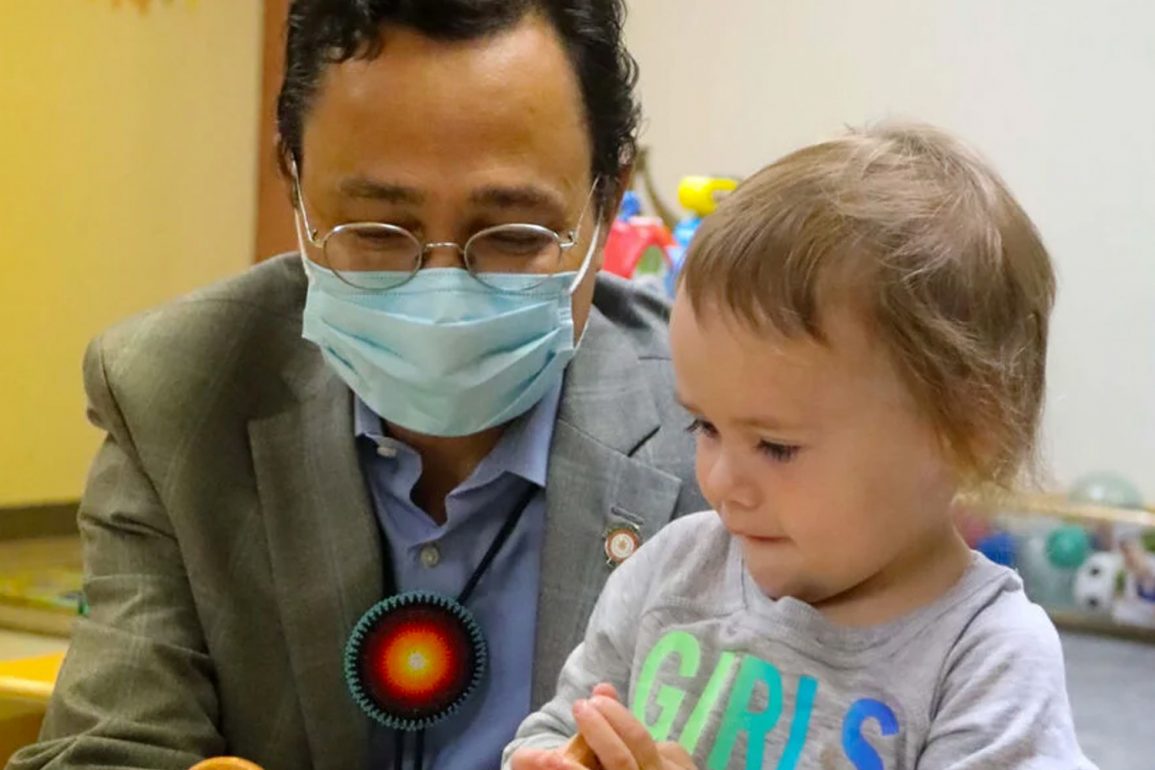Tribes in Arizona will reap big benefits from a $2.4 million investment in early childhood, elementary and special education teacher preparation. With $1 million from the Arizona Department of Education and $1.4 million from the U.S. Department of Education, 140 paraprofessional employees or employees with some college credit looking to earn a bachelor’s degree will receive aid tuition-free at Arizona State University.
The investment in the state’s Preparing Educators for Arizona’s Indigenous Communities Project at ASU will help undergraduates obtain degrees that lead to certification in elementary education or dual certification in special education and elementary education. This path assists tribal communities in meeting the needs of their communities while helping tribes create their own educational workforce, according to the Arizona Department of Education.
“Knowing that Indigenous educators play an essential role in supporting cultural awareness and inclusion, the Arizona Department of Education is committed to supporting those educators completing educator preparation programs,” said Emily O’Neil of the Arizona Department of Education’s Communications.
Some of the funding will go toward 20 employees in Gila River Indian and the Salt River Pima-Maricopa Indian communities to help them early a Bachelor’s of Science in Early Childhood Studies.
In the Salt River Pima-Maricopa community outside of Scottsdale, the project will benefit teachers and students in the tribe’s Early Childhood Education Center, which combines care for children birth to 4, early childhood learning and Head Start under one roof. The center has 146 students ages 3 to 4 currently enrolled in Head Start.
“Some of our staff have been with us for 15 years and they want the extra education but don’t want to go through all the general education classes. They want the skills to do a better job and increase their knowledge level,” said Chris McIntier, Salt River Schools Grants and Special Projects Administrator.
The center district follows the Arizona Education certification process that mandates an employee must be certified through the state before becoming a classroom teacher.
The program will benefit teachers like Evangelyn Chavez, who holds an AA degree in early childhood education and has 12 years experience in early childhood education. She has been working as an assistant teacher with Salt River schools for five years.
“It’s a good opportunity,” Chavez said, adding that she likes the paid tuition, books, laptop and stipend that come with the program. “I wanted to move up (to be a lead teacher) but I wasn’t going to unless it was paid and this opportunity came along.”
To be eligible for ASU’s online program, a student has to have two years of college credit, which will be applied toward the B.S. in Early Childhood Studies. Students spend about 20 hours a week with their cohort and finish with professional internships in schools within their communities.
This significant investment in early childhood education is one of several in Indian Country this fall. In October, the Cherokee Nation announced an allocation of $40 million to upgrade and replace eight Head Start centers in the community in Oklahoma. Principal Chief Chuck Hoskin Jr. signed into law the Verna D. Thompson Early Childhood Education Act named in honor of Head Start Director Verna Thompson, who has worked for Cherokee Nation and in early childhood education for 37 years, according to the Cherokee Phoenix. The Cherokee Nation serves nearly 900 students through its Head Start program.
Also in October, the American Indian College Fund announced a $5.3 million grant from the Bezos Family Foundation. (EarlyLearningNation.com is an initiative of the Bezos Family Foundation.) The grant will support the College Fund’s Indigenous Early Childhood Education program, including faculty development and family engagement, at 10 tribal colleges and universities during the next four years. The College Fund has committed to raise an additional $6 million to offer the program to 25 other tribal colleges and universities, according to a news release.
Kim Baca (Navajo/Santa Clara Pueblo) is an award-winning writer and owner of KB Consulting, an Albuquerque-based company specializing in public relations, communications and content marketing in mainstream markets and Indian Country. Kim provides services based on nearly 10 years of media experience that includes The Associated Press, The Santa Fe New Mexican and El Paso Times. Kim has also been a marketing and communications director in the higher education and nonprofit sectors, and served as interim executive director of the former Native American Journalists Association before the organization moved to Oklahoma.




